If you have any questions or suggestions feel free to contact us:
info(at)kidsofmaseno.de
presse(at)kidsofmaseno.de
finanzen(at)kidsofmaseno.de
Nele Gabriel
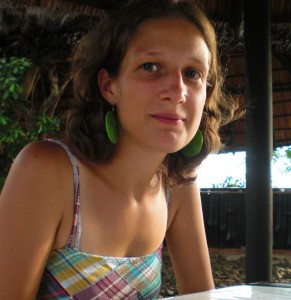 I am studying special education and social anthropology at the University of Mainz. For the first time I travelled to Kenya in 2006 and worked at a children’s home in Nyeri, Central Kenya. The visit of a course “Introduction of the German Sign Language” during my studies aroused my interest for Sing Languages and Deafness in gerneal and thereupon I attended several courses of German Sign Language in Mainz. In 2008 I travelled again to Kenya and completed an internship at the School for the Deaf in Maseno the following year. I started to learn the Kenyan Sign Language and got engaged with the situation of Deaf people in Kenya. I also started to work on a voluntary basis with several local associations and groups. Another stay followed in the beginning of 2010 and in the end of this year I am going back to Kenya to work on my thesis. Feel free to contact me.
I am studying special education and social anthropology at the University of Mainz. For the first time I travelled to Kenya in 2006 and worked at a children’s home in Nyeri, Central Kenya. The visit of a course “Introduction of the German Sign Language” during my studies aroused my interest for Sing Languages and Deafness in gerneal and thereupon I attended several courses of German Sign Language in Mainz. In 2008 I travelled again to Kenya and completed an internship at the School for the Deaf in Maseno the following year. I started to learn the Kenyan Sign Language and got engaged with the situation of Deaf people in Kenya. I also started to work on a voluntary basis with several local associations and groups. Another stay followed in the beginning of 2010 and in the end of this year I am going back to Kenya to work on my thesis. Feel free to contact me.
Sandra-K. Groß
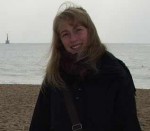 At the moment I am writing my final thesis about the Cinema Translators in Dar es Salaam. I am studying Social Anthropology, African Languages and Cultural Anthropology at the University of Mainz. My main interests are Visual Anthropology and Filmmaking, I am also writing articles for newspapers. My primary field of duty within the association are all kinds of public relations. If you have any questions or comments regarding this field please do not hesitate to contact me.
At the moment I am writing my final thesis about the Cinema Translators in Dar es Salaam. I am studying Social Anthropology, African Languages and Cultural Anthropology at the University of Mainz. My main interests are Visual Anthropology and Filmmaking, I am also writing articles for newspapers. My primary field of duty within the association are all kinds of public relations. If you have any questions or comments regarding this field please do not hesitate to contact me.
Julia Herz-el Hanbli
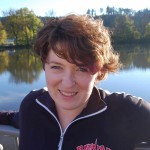 I’m studying at the University of Mainz Social Anthropology, Cultural Anthropology, Indology and European Migration. On one side I focus on the examination of different philosophies of life and religions (Ethnology of Religion). On the other side the examination of different healing systems (Medical Ethnology). For this reason I volunteered in a local organization in Kenya in October 2008, which takes care of children who have the HI-Virus or who became orphans because of that virus.
I’m studying at the University of Mainz Social Anthropology, Cultural Anthropology, Indology and European Migration. On one side I focus on the examination of different philosophies of life and religions (Ethnology of Religion). On the other side the examination of different healing systems (Medical Ethnology). For this reason I volunteered in a local organization in Kenya in October 2008, which takes care of children who have the HI-Virus or who became orphans because of that virus.
Every culture has its own understanding of illness and well-being, and ill people have often to fight against different stigma. Deaf people in Africa have to handle stigma and prejudices as well. I would like to make people aware of the fact that each person is equal and to support a living together where everyone is treated in the same way.
In this association I work in the field of public relations.
Andrea Noll
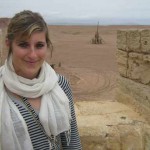 I studied Social Anthropology, French and Cultural Studies at Mainz University. At the moment I am employed at the Department of Anthropology and African Studies in Mainz. My main interests are education and schooling in sub-Saharan Africa. My MA thesis was based on four months of fieldwork in a girls’ boarding school in Northern Ghana.
I studied Social Anthropology, French and Cultural Studies at Mainz University. At the moment I am employed at the Department of Anthropology and African Studies in Mainz. My main interests are education and schooling in sub-Saharan Africa. My MA thesis was based on four months of fieldwork in a girls’ boarding school in Northern Ghana.
Kathrin Osterziel
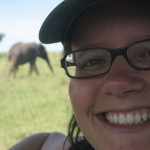 My first travel to Kenya was during my psychology studies in 2008. I stayed there for 6 weeks and because the country, the culture and the people impressed and fascinated me so much, I decided to work in the AIDS-sector in Kisumu on a voluntary basis the following year. Through the work in the AIDS-sector I got in contact with Deaf Kenyans, who are trained as counselors for the testing and treatment. From this time on I got involved with projects from and for Deaf people in Kenya. This includes visiting the school for the Deaf in Maseno, attending the church of the Deaf and learning some basics of the Kenyan Sign Language. Now, after my stay in Kenya, and after graduation
My first travel to Kenya was during my psychology studies in 2008. I stayed there for 6 weeks and because the country, the culture and the people impressed and fascinated me so much, I decided to work in the AIDS-sector in Kisumu on a voluntary basis the following year. Through the work in the AIDS-sector I got in contact with Deaf Kenyans, who are trained as counselors for the testing and treatment. From this time on I got involved with projects from and for Deaf people in Kenya. This includes visiting the school for the Deaf in Maseno, attending the church of the Deaf and learning some basics of the Kenyan Sign Language. Now, after my stay in Kenya, and after graduation
Jeanine Wein
While comparing languages I got int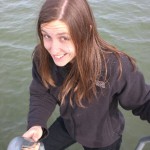 erested in German Sign Language (DGS) and started to gather information about the language and the poeple who use it. I attended to some German Sign Language courses in Mainz and my final thesis was about how signed languages work in comparison to spoken ones. By doing all this I’ve came to understand the importance of overcoming the common prejudices often connected to sign languages and deaf people. Sign languages are indeed natural and fully-fledged languages as for example German or English are. So Deaf people have a right to have acces to education and learning in their mother tongue.
erested in German Sign Language (DGS) and started to gather information about the language and the poeple who use it. I attended to some German Sign Language courses in Mainz and my final thesis was about how signed languages work in comparison to spoken ones. By doing all this I’ve came to understand the importance of overcoming the common prejudices often connected to sign languages and deaf people. Sign languages are indeed natural and fully-fledged languages as for example German or English are. So Deaf people have a right to have acces to education and learning in their mother tongue.